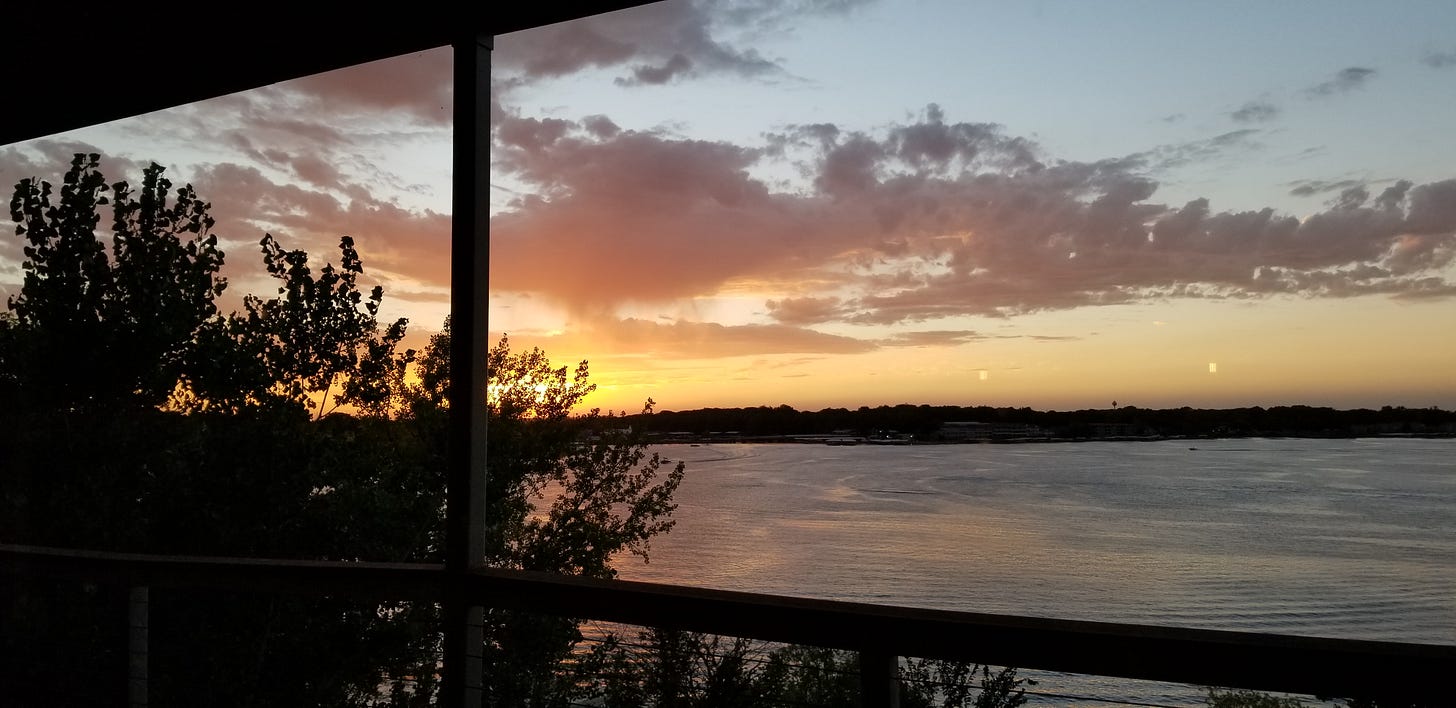Transcendence. It’s not a word we hear every day, but it’s becoming one of my favorites. I started thinking about it a few weeks ago for a yearlong memoir class I co-teach with author Amy Ferris through Story Summit.
Transcendence is the inner shift that happens at the end of a great memoir—or any great story, for that matter.
It’s a moment of understanding, hope, forgiveness, acceptance, inspiration. The change that soothes the pain and cleanses the soul. The realization that we can find gifts in the challenges of life if we choose to look.
Transcendence is the whole point of our stories. Without it, we may feel like we’ve been led into a burning building and abandoned there. Transcendence shows us the way out.
It doesn’t mean that every story ends happily ever after, but it reminds us that our lives have meaning—every situation can lead to growth and healing.
If you’ve read Eat, Pray, Love, you’ll recognize transcendence as Liz Gilbert’s readiness to love again. In Educated, it’s Tara Westover’s acceptance of her father’s skewed view of the world, even while she chooses not to see him alone again.
Transcendence is the moment we write about. It’s also the moment we live day after day.
This past week, I was delighted to be on the faculty for the Okoboji Writers Retreat, organized by my friend Julie Gammack. Transcendence was everywhere.
Caleb Rainey, an extraordinary African-American spoken word artist, poured out his poem about good dads in the black community, bringing a lot of people to their feet—and to a moment of transcendence.
Michelle Cowan-Schroeder, author of the forthcoming book Better, Not Bitter, talked about how writing the book changed her. I had the honor of mentoring Michelle on her manuscript, which tells the story of her husband being killed by a drunk driver and the aftermath in her life and the life of her daughter. When Michelle started writing, she wanted to name and blame the drunk driver who killed her husband. But by the time she finished, she had forgiven the woman. Her book still argues for tighter laws on overserving patrons at bars, but now she does it with compassion rather than vitriol. Transcendence.
In my breakout sessions at the writing retreat, I got to know a woman who had never spoken publicly about her ability to channel spirits. At the end of the retreat, she read one of her channeled pieces to an audience of 200, claiming her gift and sharing it openly, without self judgment. Transcendence.
I met a woman who had been given away as a week-old baby. She wrote about the knock at the door that led her to her adoptive mom and a life of achievement. Three generations in her family now are college educated, thanks to her perspective of gratitude, not victimhood. Transcendence.
I see transcendence in the writing of our students in our Year of Memoir, too. The woman whose son is in prison. The woman who was raised in a cult. The woman who discovered her homeless mom digging in a dumpster and has rebuilt a relationship with her and brought her back into the family and society. Transcendence.
It is rising above. Accepting. Setting boundaries and letting go. Transcendence is a moment of peeling back the layers of fear and discovering that peace has been there all along.
I believe it’s a sacred act to walk with writers as they find this in their lives and their writing. To witness the unveiling of the peace within.
I learn from them every day, stopping myself moment by moment in the story of my life and asking myelf, “What would transcendence look like now?”
This is why we write. Why we find our voices. Why we share those voices with the world.
I’m grateful to all the writers who have the courage to mine their life experiences for a glint of gold. This is how we lift each other up. If I can find my transcendence, maybe you can, too.



Oh, Deb, this is so thoughtful. Thank you, thank you!